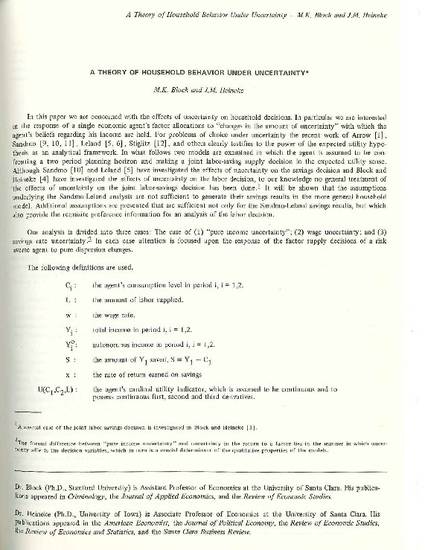
In this paper we are concerned with the effects of uncertainty on household decisions. In particular we are interested in the response of a single economic agent's factor allocations to "changes in the amount of uncertainty" with which the agent's beliefs regarding his income are held. For problems of choice under uncertainty the recent work of Arrow [1], Sandmo [9, 10, 11], Leland [5, 6], Stiglitz [12], and others clearly testifies to the power of the expected utility hypothesis as an analytical framework. In what follows two models are examined in which the agent is assumed to be confronting a two period planning horizon and making a joint labor-saving supply decision in the expected utility sense. Although Sandmo [10] and Leland [5] have investigated the effects of uncertainty on the savings decision and Block and Heineke [4] have investigated the effects of uncertainty on the labor decision, to our knowledge no general treatment of the effects of uncertainty on the joint labor-savings decision has been done. It will be shown that the assumptions underlying the Sandmo-Leland analysis are not sufficient to generate their savings results in the more general household model. Additional assumptions are presented that are sufficient not only for the Sandmo-Leland savings results, but which also provide the requisite preference information for an analysis of the labor decision.
